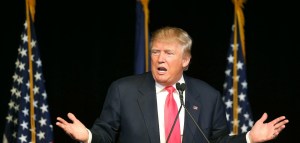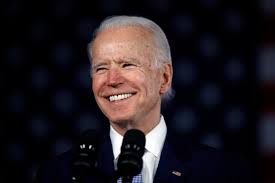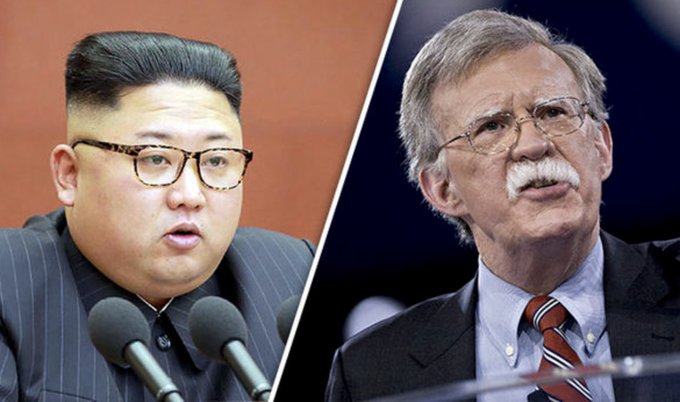

[REPORTED IN FOREIGN POLICY FEB 4, 2016]: I guess if Pakistan is bewildered by Trump and Putin is enthusiastic (perhaps not the endorsement that Trump needs) and his effigy is a hit in Dusseldorf,and he’s “Taken New Hampshire”, the dude is having a very good week… shiels/2/11/16
DISPATCH
‘The Rise of the American Taliban’
Pakistan’s elite on the Trump phenomenon.
BY LAWRENCE PINTAK FEBRUARY 4, 2016
‘The Rise of the American Taliban’
KARACHI, Pakistan — In the strongholds of hard-line Pakistani Islamist thought, they are talking about Donald Trump and laughing. Then they shake their heads with concern. “He doesn’t belong in the White House, he belongs in a mental hospital,” 46-year-old Hafez Tahrir Ashrafi, a Muslim cleric who is head of the country’s Ulema Council, told me with a throaty roar. An obese man with a wild dark beard, Ashrafi is an advisor to the Pakistani government and a former jihadi who fought in Afghanistan as a youth — Pakistani media has quoted him endorsing suicide bombing against U.S. troops in Afghanistan. “We do not believe the Americans will elect a man like that with his very dirty statements,” Ashrafi continued. “But if that happens, then he creates the problem not for the Muslims, but for the Americans and for himself.”
Ashrafi is not alone in that view. Sen. Ted Cruz may have won Iowa, but it’s Trump who has Pakistan’s elite simultaneously amused and concerned.Sen. Ted Cruz may have won Iowa, but it’s Trump who has Pakistan’s elite simultaneously amused and concerned. Ten days of interviews in late January with a broad cross-section of Pakistani intelligentsia — Islamists, liberals, policymakers, and bloggers — can be summed up in a single sentence: Trump is a clown, but he is a dangerous clown who could cause long-term damage to U.S. relations with the Muslim world.
Pakistan’s relationship with the United States is complex. It has been a vital ally in the Afghan war, but its intelligence services have played both ends against the middle, supporting some extremists for its own geopolitical aims, while battling others. The country is in a virtual state of civil war and there are deep divisions between the civilians and military leadership. The army has been locked in a major offensive against militants in the tribal areas and a simultaneous operation to wrest back control of Karachi, the commercial capital, from militias and criminal gangs, and there are ongoing rebellions in several parts of the country. But Pakistan’s importance to U.S. foreign policy is seen in both its efforts to help broker a deal in Afghanistan and its efforts to mediate between Saudi Arabia and Iran.
And it’s that positive side that makes Trump’s campaign rhetoric so problematic. “When people who are not sophisticated hear his comments and see Americans voting for him, that translates into anti-U.S. sentiment,” says Dr. Ishrat Husain, a former central bank governor under the early 21st-century regime of Gen. Pervez Musharraf. “We can only hope he doesn’t get the nomination. That would be a disaster.”
But many Pakistanis who are “sophisticated” also question what Trump’s success so far says about the direction of American society. They fear they are getting a glimpse into the dark side of the American psyche — and seeing it reflected back in their own. More than 4,600 people died of violence in Pakistan in 2015, according to the country’s Centre for Research and Security Studies — which in itself is a sharp drop from the more than 7,600 people who died in 2014.
“We’re living in a world where we seem to be competing for the space from which you can preach or promote intolerance of the other,” says Zohra Yusuf, chairperson of the nonprofit Human Rights Commission of Pakistan, with exhaustion in her voice.
Inside the heavily fortified walls of the Lahore University of Management Sciences, some of the country’s best and brightest study business, computer science, and engineering, with images of careers in the United States dancing in their heads. “Social media is full of posts about Trump,” a graduate student, who asked not to give her name, told me when I asked if Pakistanis are paying attention to the campaign. “Positive or negative?” I teased, just to see the reaction. She and her friends erupted in laughter. “Negative, of course!”
In Pakistan these days, one hears much talk of visas denied and dreams quashed. The daughter of a close friend recently earned her medical degree. She just returned home to the city of Lahore after three months looking for opportunities in the United States where she had always dreamed of being a doctor. Now she is having second thoughts. An Australian or New Zealand accent may be in her future. “She just didn’t feel comfortable with all she was hearing and seeing on television,” my friend told me. “She felt like people were judging her wherever she went.”
Trump may be a fixture on the social media feeds of educated Pakistani youth, but he has been largely AWOL from the mainstream media. Ditto the primaries as a whole. “It barely comes up in our editorial meetings,” Fahd Husain, executive director of Express News TV, one of Pakistan’s dozens of often-sensational news channels, told me, sitting in his Lahore newsroom.
At the Karachi headquarters of Geo TV, one of the country’s largest networks, I heard much the same. Geo has aired most of the GOP and Democratic debates with Urdu translations, but the broadcasts have elicited relatively little comment. “People are more concentrated on what’s happening in Pakistan,” says Azhar Abbas, Geo’s news chief. Not surprising given that the nation is still reeling from the deaths of more than 20 people, most of them students, in a January attack on a university — just the most egregious recent example of the daily carnage. “Now we will not kill the soldier in his cantonment, the lawyer in the court, or the politician in parliament, but in the places where they are prepared, the schools, the universities, the colleges that lay their foundation,” a Pakistani Taliban leader warned after the attack.
Badr Alam, the self-effacing editor of The Herald, an English-language newsweekly, sheepishly notes that another reason for the lack of coverage of Trump — and the campaign in general — is that many Pakistanis, including editors, simply don’t understand the U.S. primary system. “In the media I think there will be 10-15 people who would really know how the election happens.”
But Hameed Haroon, Pakistan’s most influential publisher — and Badr’s boss — says there is also a conscious decision on the part of some editors not to stir the international relations pot. The Pakistani media does not normally hesitate to publish anti-American rants, but Haroon, whose family owns the Dawn media group, says those opinions are usually tied to specific U.S. policy actions and include “a retreat mechanism,” by which he means that when policies or policymakers change, the framing of the United States in the media changes.
Trump, says Haroon, endangers that fail-safe “retreat mechanism” in U.S.-Pakistani relations. “It’s not a conscious censorship as such, [but] to enshrine Trump as an example of how bad America is would open up darker perspectives and dis-balance the possibility of any positive perception of America in this region,” he told me.
Not everyone is so grim. “The Europeans have become more tolerant [toward Islam], but tolerance can be condescending,” says Muneer Kamal, chairman of both the Karachi Stock Exchange and the National Bank of Pakistan, who thinks Trump is an aberration. “The Americans have moved to a completely different place — acceptance” of Muslims.
Still, Trump and Hillary Clinton are upending Pakistan’s policy worldview about relations with Washington: Since Dwight D. Eisenhower, according to the well-worn trope, Democrats tilt toward India, Republicans tilt toward Pakistan (and more problematically, Pakistani military dictatorships). Clinton may be a Democrat, but she’s a proven commodity — someone Islamabad can deal with. The battle of inflammatory soundbites on the Republican side has Pakistani heads spinning.The battle of inflammatory soundbites on the Republican side has Pakistani heads spinning. “This time around,” according to retired Ambassador Ali Sarwar Naqvi, head of the Center for International Strategic Studies think tank, which is close to Pakistan’s military and political leadership, “we can’t make sense of the Republican party.”
“You need a dose of Hillary to clean out a dose of Trump,” says Dawn’s Haroon. But he and others worry that isn’t enough, that something more fundamental is taking place in American society that will reshape U.S. foreign policy.
There’s that theme again: the dark side. Economist Kaiser Bengali, an advisor to the governor of the province of Baluchistan, calls it “the rise of the American Taliban,” which he says began in the Reagan administration and is now hitting critical mass with the Trumpites. “This is against the democratic values,” warns Dr. Farid Ahmed Piracha, number two in Jamaat-e-Islami, Pakistan’s largest Islamist group. “If there is such mindset, then there will be more difficulties for the United States and more terrorism.”
But let’s not be misled. As every foreign correspondent knows, there is one ultimate go-to source for the real ground truth in every country: the taxi driver.
Heading through the deserted, early morning streets toward the airport in the military capital Rawalpindi, fending off hawkers and beggars at each red light, my hotel driver Syed and I talked U.S. politics. On the other side of the world, Iowans were donning boots and parkas as they headed toward — well, wherever it is Iowans go in that bizarre quadrennial ritual.
“How many days lasts American election?” asked Syed.
“Ten months,” I replied, wondering how I was going to explain this.
There was a long, pregnant pause.
“Hillary is a nice lady,” he said.
And we drove on.
Image Credit: Joe













